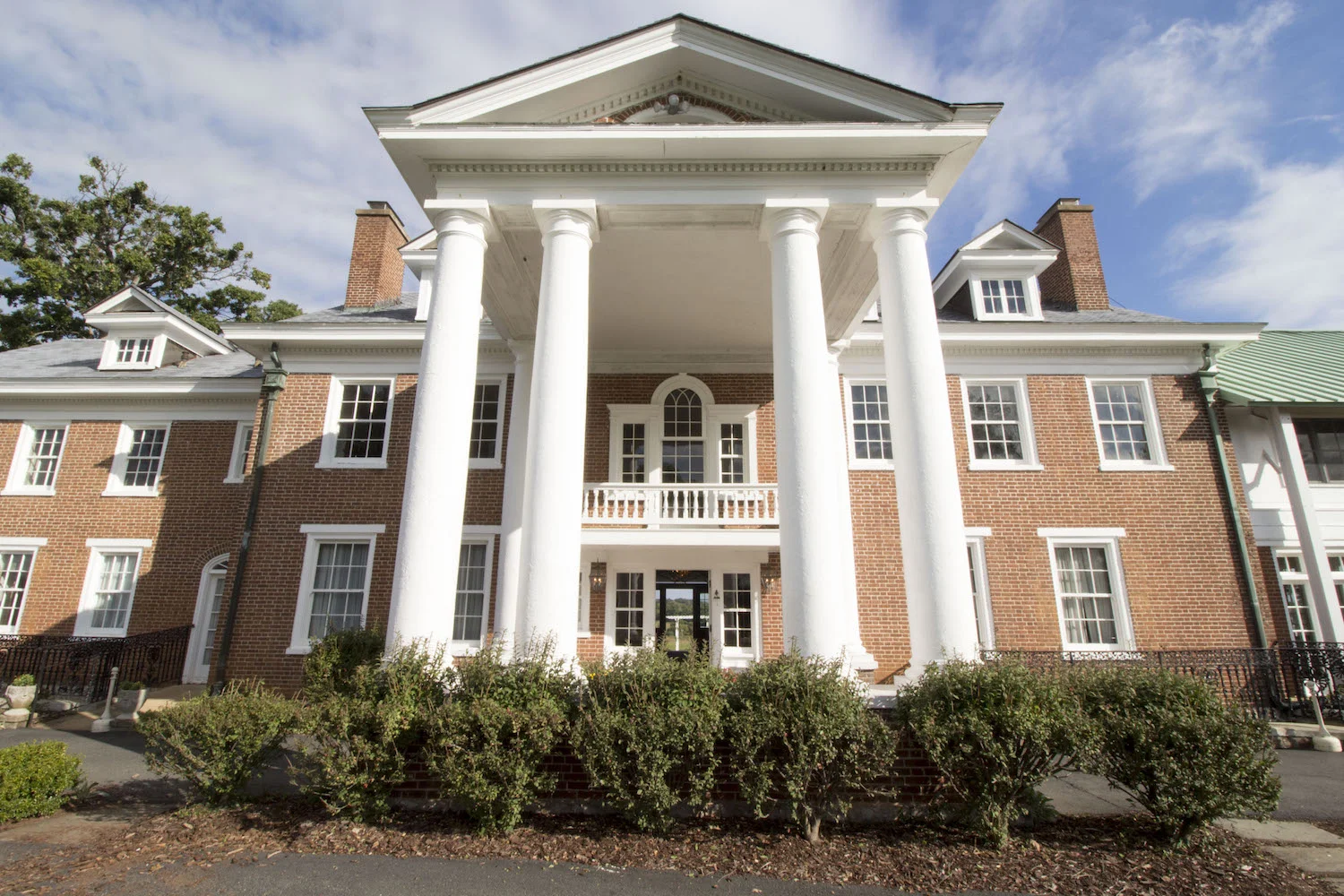Raspberry Plain Manor History
1731 - Thomas Fairfax, 6th Lord Fairfax of Cameron granted the title to the 322 acre Raspberry Plain property to blacksmith Joseph Dixon.
1735 – George Mason, III, died without a will. His estate was left to this eldest son, George Mason IV. His widow, Mrs. Ann Thomson Mason, purchased 10,000 acres in the “wild lands” of Loudoun county for only a few schillings per acre to create an estate for her other two surviving children, Thomson and Mary. This was a profitable investment and the younger two children became wealthier than George IV.
1754 - Strawberry Plain - Aenas Campbell, Loudoun County’s first sheriff purchased the property and built the mansion and the first jail in Loudoun on the Raspberry Plain property
1755 – Gunston Hall built by George Mason, IV, one of the Founding Fathers
1760 – The Raspberry Plain property was then purchased by George Mason IV's younger brother, Thomson Mason, who farmed it in corn, rye, oats and buckwheat. The deed is dated May 15, 1760 for 500 pounds current money of Virginia.
1765 – Rockeby - built by Charles Binns, Sr.
1771 - Thomson Mason, brother of George Mason, built the mansion at Raspberry Plain on the site of the current building.
1785- Upon Thomson's death, the Raspberry Plain estate was deeded to his eldest son Stevens Thomson Mason, U.S. senator from Virginia and Colonel in the Continental Army. The mansion at Raspberry Plain was added to throughout the 19th-century and demolished around 1910.
1790 – Exeter – built by Dr. Wilson Cary and Mary Mason Seldon
1796 – Chestnut Hill - built by Samuel Clapham. It was later enlarged by Thomson Francis Mason, Clapham’s son in law.
1800 approximate - Locust Hill – built by John Thomson Mason, son of Thomson Mason
1800 – Belmont - built by Ludwell Lee, son of Richard Henry Lee
1800 – Selma - Thomson Mason’s younger son, Armistead Thomson Mason, received that part of the Raspberry Plain tract that came to be known as Selma. Armistead Mason built the first house at Selma between 1800 and 1810.
1804 – Oatlands - built by George Carter
1810 – Temple Hall – built by William Temple Thomson Mason, son of Thomson Mason
1820 – Llangollan – built by Cuthbert Powell
1819 - Armistead Thomson Mason, of Selma, was shot and killed by his cousin, John Mason McCarty of Strawberry Plain, part of the Raspberry estate, in a duel fought at the Bladensburg dueling grounds in Bladensburg, Maryland.
1820 – Foxcroft - built by John Kile
1820 – Oak Hill - built by President James Monroe
1822 – Rockland - built by General George Rust
1825 – Morven Park - built by Governor Thomas Swann of Maryland
1830 – George, John, Peter and Samuel Hoffman of Baltimore purchased the Raspberry Plain estate (then about 250 acres) for $8,500. The estate stayed in the Hoffman family until it was purchased by John Guthrie Hopkins.
1910 – Original mansion at Raspberry Plain destroyed.
1916 –John G. Hopkins purchased Raspberry Plain estate from the Hoffman family and built the current mansion.
1931 – Raspberry Plain was purchased by Mr. and Mrs. William H. Lipscomb. Mr. Lipscomb was the Master of Loudoun Hunt and hosted many of hunt breakfasts at the estate.
1994 – Raspberry Plain was purchased by Brian and Maria Guerra Meehan.
1998 – Antonio and Bobbi Jo Cecchi purchased part of the original Raspberry Plain estate and built Rose Hill Manor. Antonio’s father, Giuseppe Cecchi, developed the famous Watergate property in Washington, DC.
2002 - Foxchase Manor - built by Antonio Cecchi
2016 – Raspberry Plain was purchased by Antonio and Bobbi Jo Cecchi, of Rose Hill Manor.


